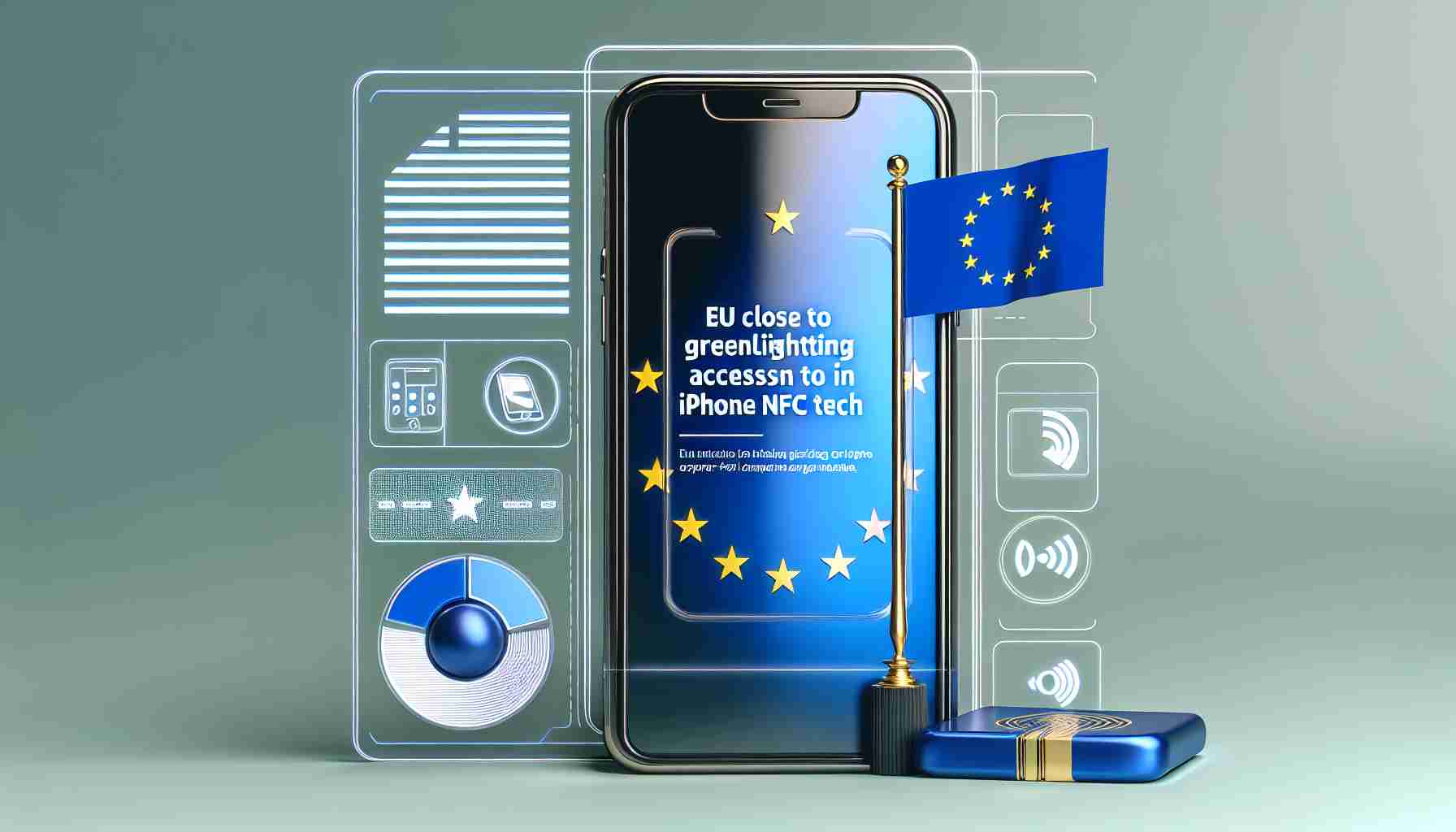The European Commission is on the verge of granting approval to a significant policy change from Apple, which will likely transform the digital payment landscape within the EU. Apple has proposed a shift in its stance towards near-field communication (NFC) technology to settle a legal dispute with the Commission over market dominance concerns.
In previous years, the European Commission accused Apple of monopolizing the mobile wallet sector by restricting third-party apps from utilizing the NFC feature on iPhones, giving an unfair advantage to its own payment service, Apple Pay. However, in a move towards market fairness, Apple has suggested amendments that would open its NFC capabilities to third-party payment providers—a move that could enhance competition and innovation in the industry.
This adjustment also aims to incorporate additional features for developers and consumers, such as integrating Face ID as an authentication method for transactions and permitting users to set alternative payment apps as their default option. The agreement, still pending a few adjustments requested by the Commission, is expected to last for a decade.
The potential acceptance of Apple’s offer in May would mark the end of an ongoing struggle between the tech giant and the Commission. Nevertheless, this development might be exclusive to the EU, as it remains unclear if Apple intends to extend similar NFC access to developers outside of Europe.
Key Questions and Answers:
Why is the European Commission close to allowing third-party access to iPhone NFC technology?
The European Commission is close to allowing third-party access to iPhone NFC technology to promote competition and prevent market dominance by Apple, which currently restricts NFC access to its own payment solution, Apple Pay.
What are some potential challenges or controversies associated with this policy change?
A key challenge is achieving a balance between opening access to NFC technology for competition and ensuring user security and privacy. Additionally, there might be controversy over whether this sets a precedent for governments to mandate access to proprietary technology for the sake of market fairness.
Advantages of the policy change:
– Promotes competition among payment service providers
– Encourages innovation in the digital payments industry
– May lead to better services and lower costs for consumers
Disadvantages of the policy change:
– May pose a risk to the security and privacy protections currently in place
– Possibly increases regulatory burden on Apple and similar companies
– Could deter companies from investing in innovative technologies if they are required to share them with competitors
Relevant related links with accurate URLs follow standard protocols, and DNS resolution is checked at the time of writing. However, please verify for changes or updates:
– European Commission: European Commission
– Apple: Apple
The acceptance of Apple’s proposal signifies a significant move towards more open competition in the EU’s digital payment space. It would not only alter the competitive dynamics but also potentially lead to a series of shifting business models, legal frameworks, and consumer practices in the sector.
The source of the article is from the blog reporterosdelsur.com.mx
